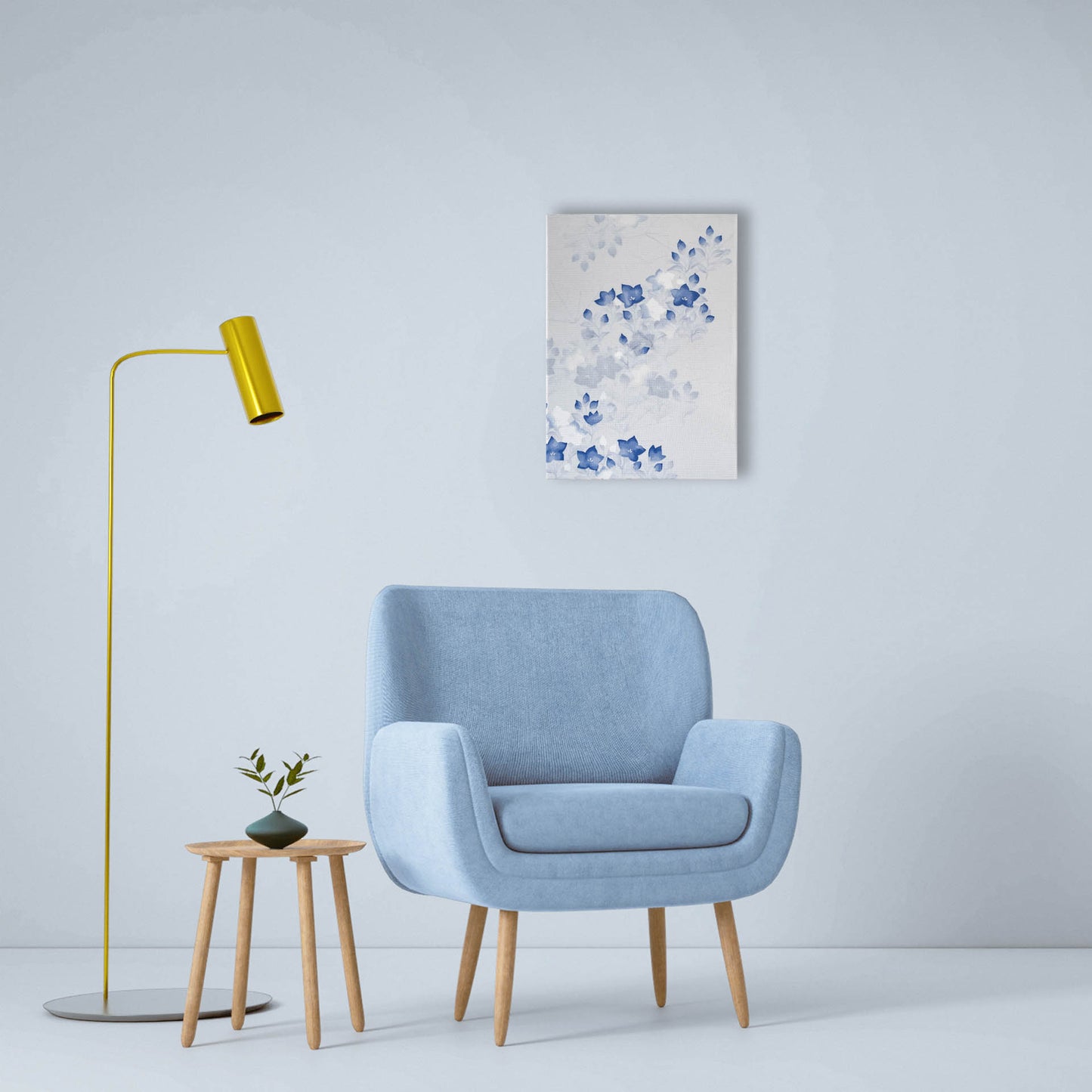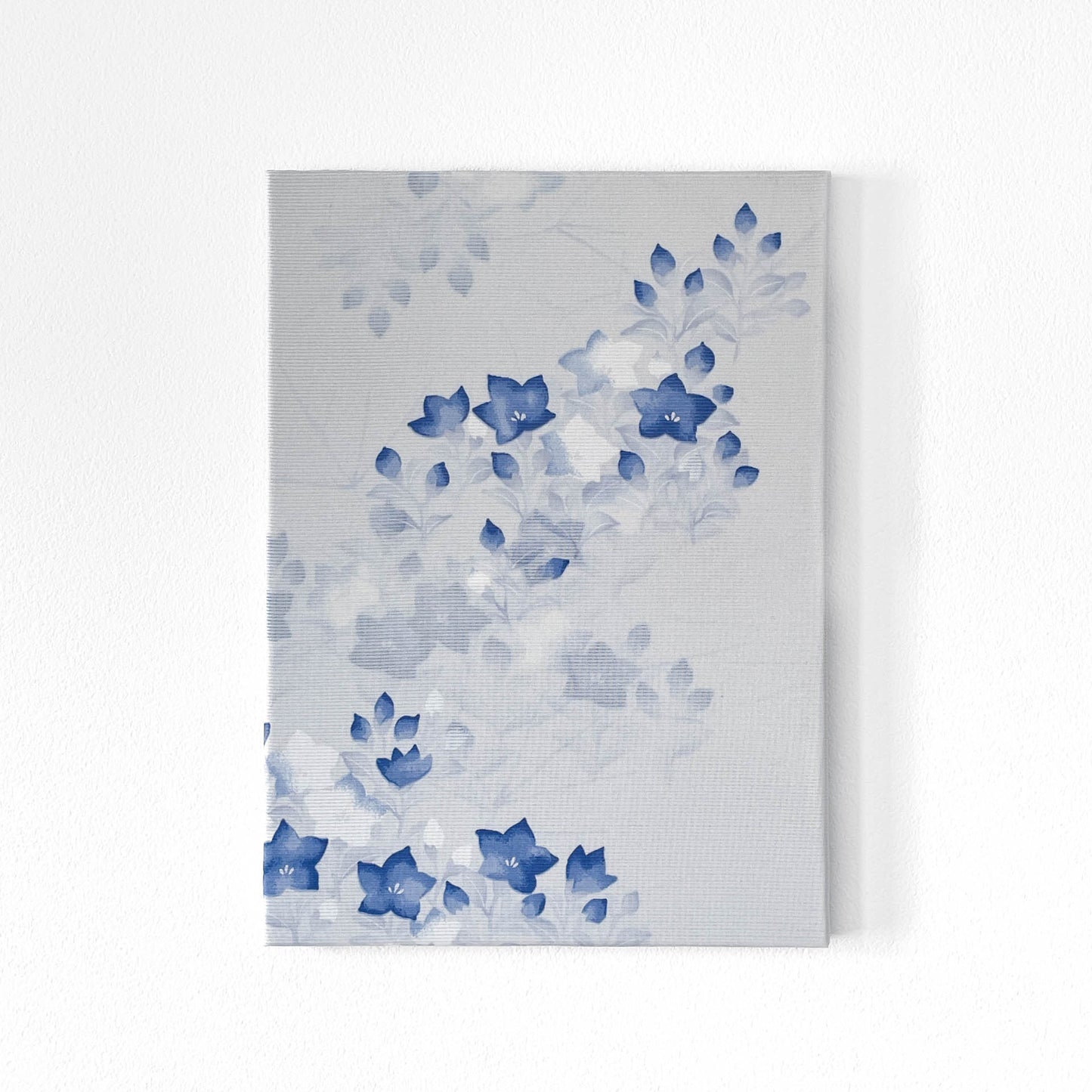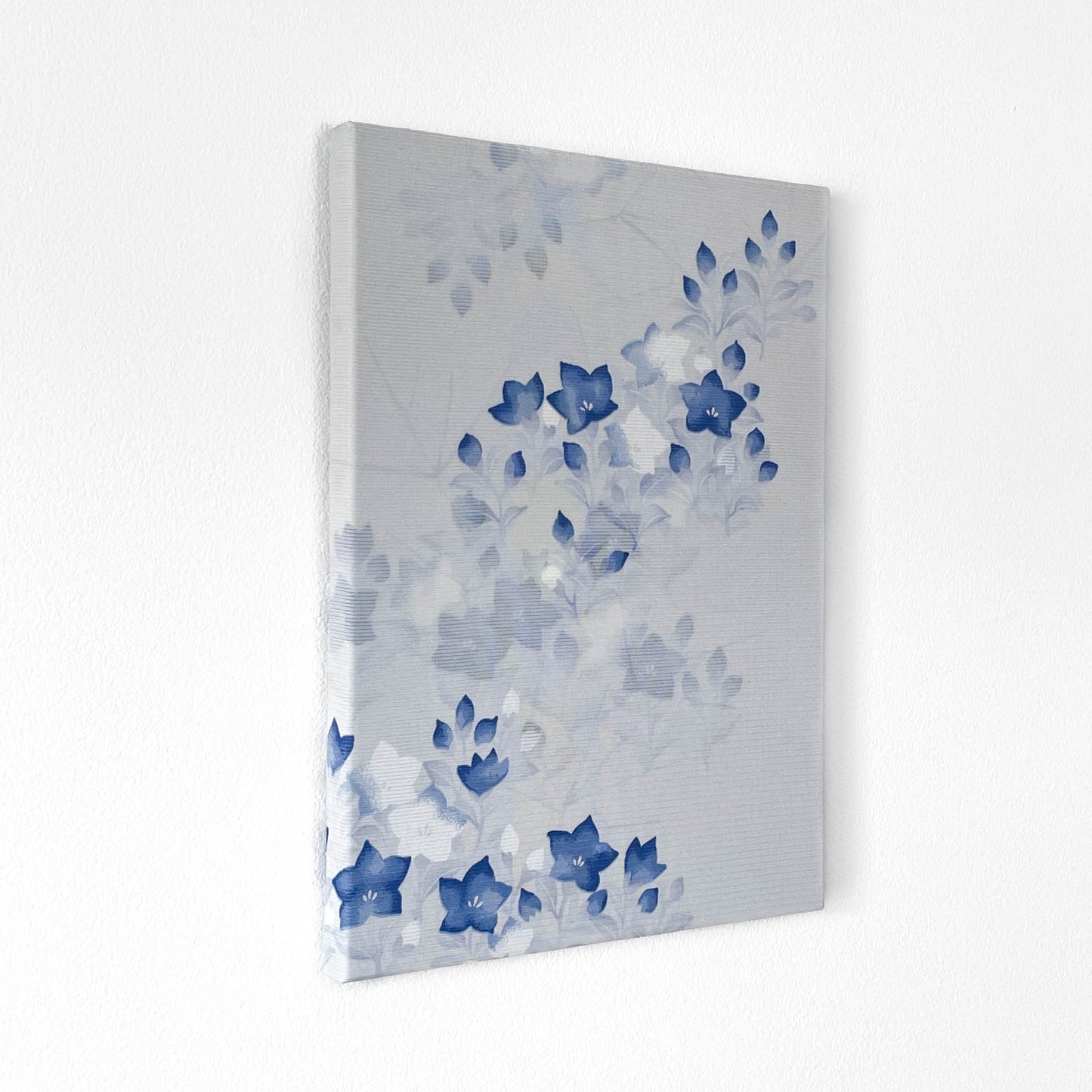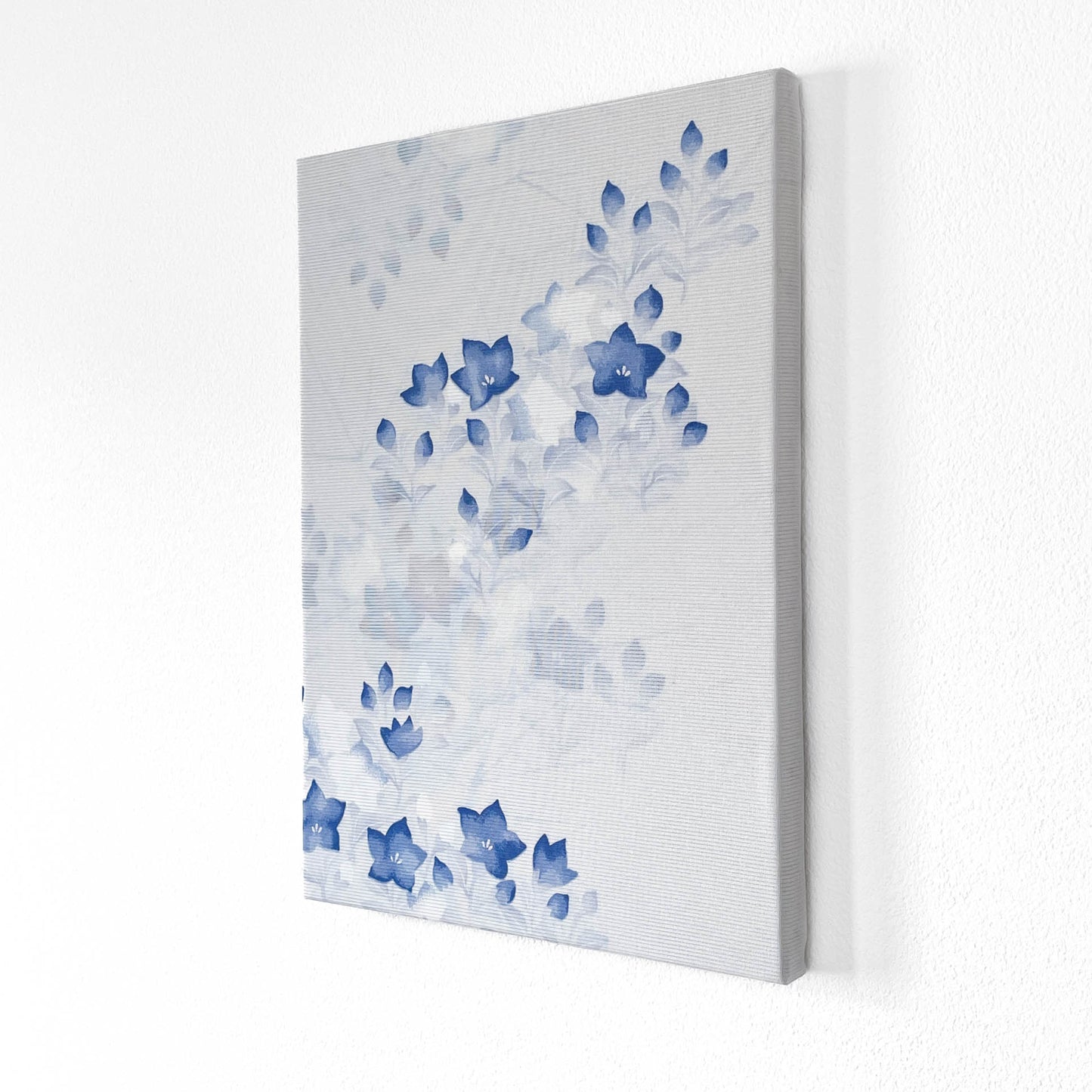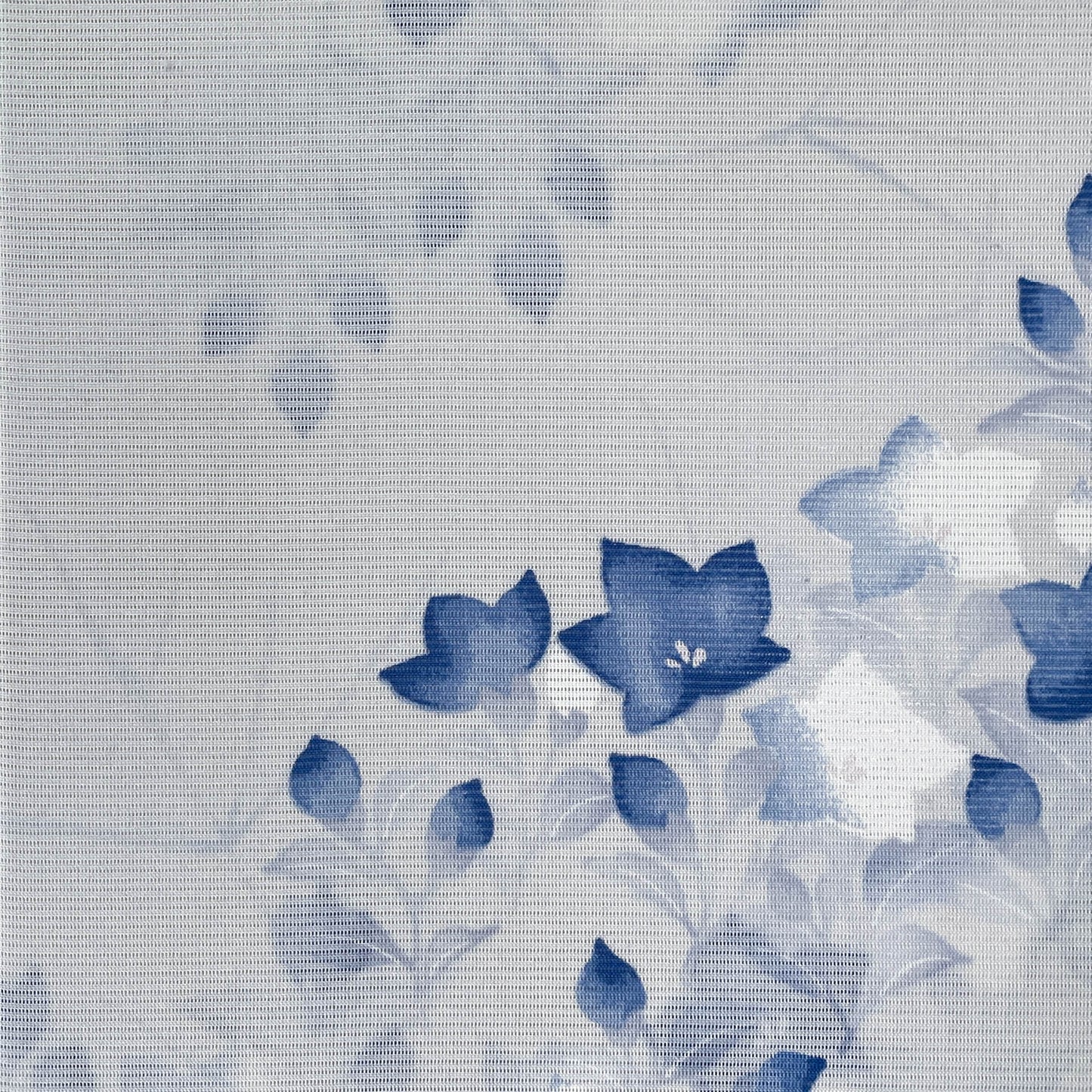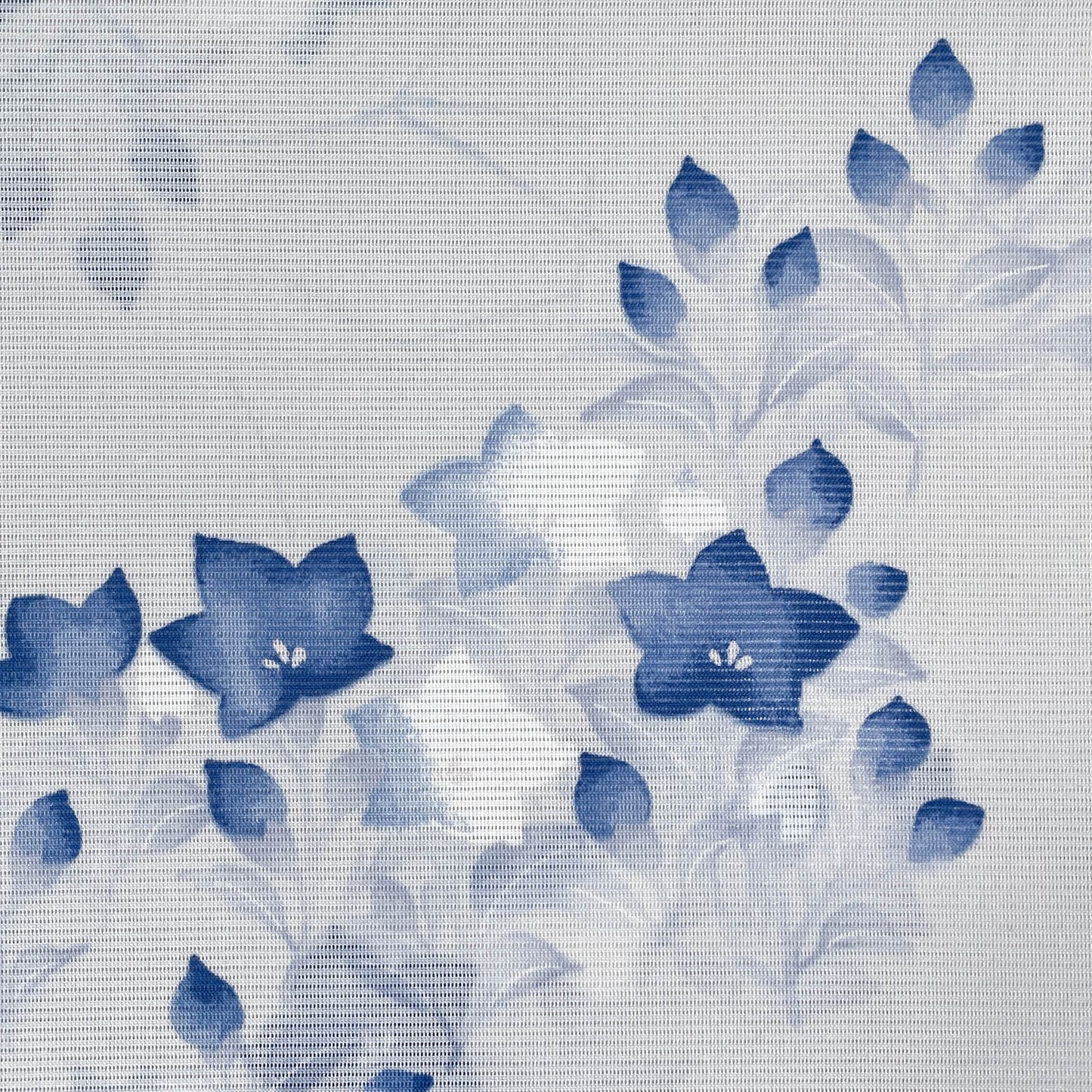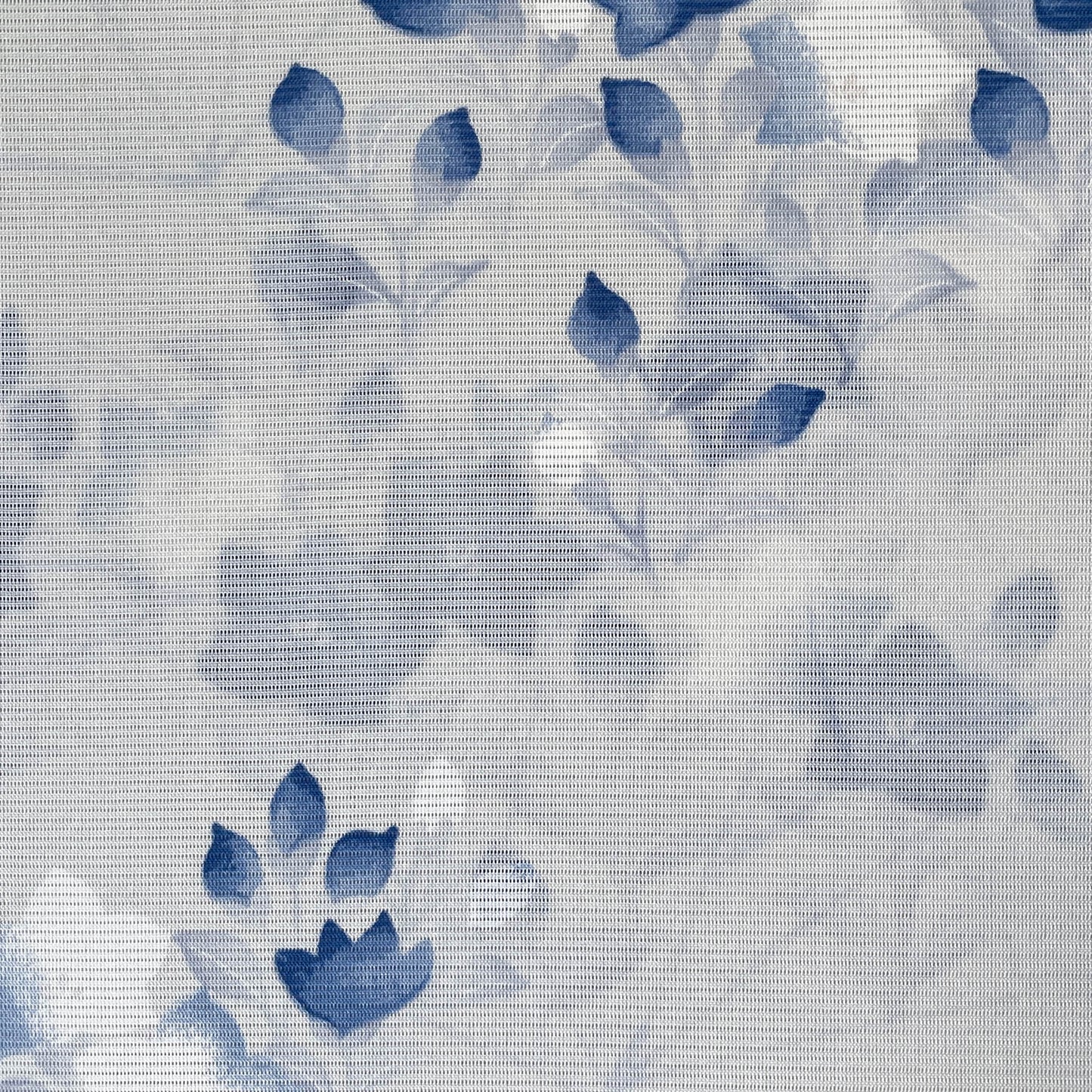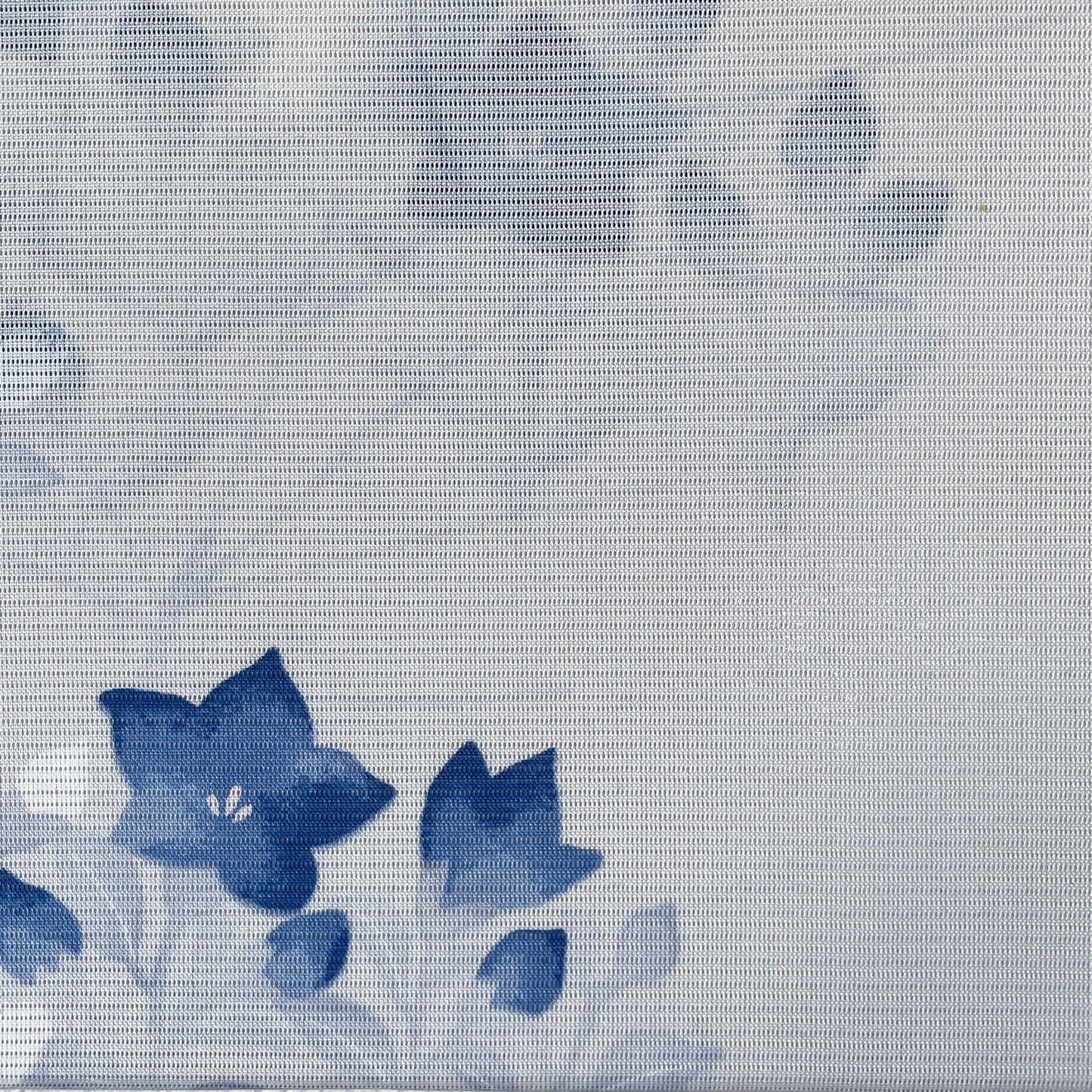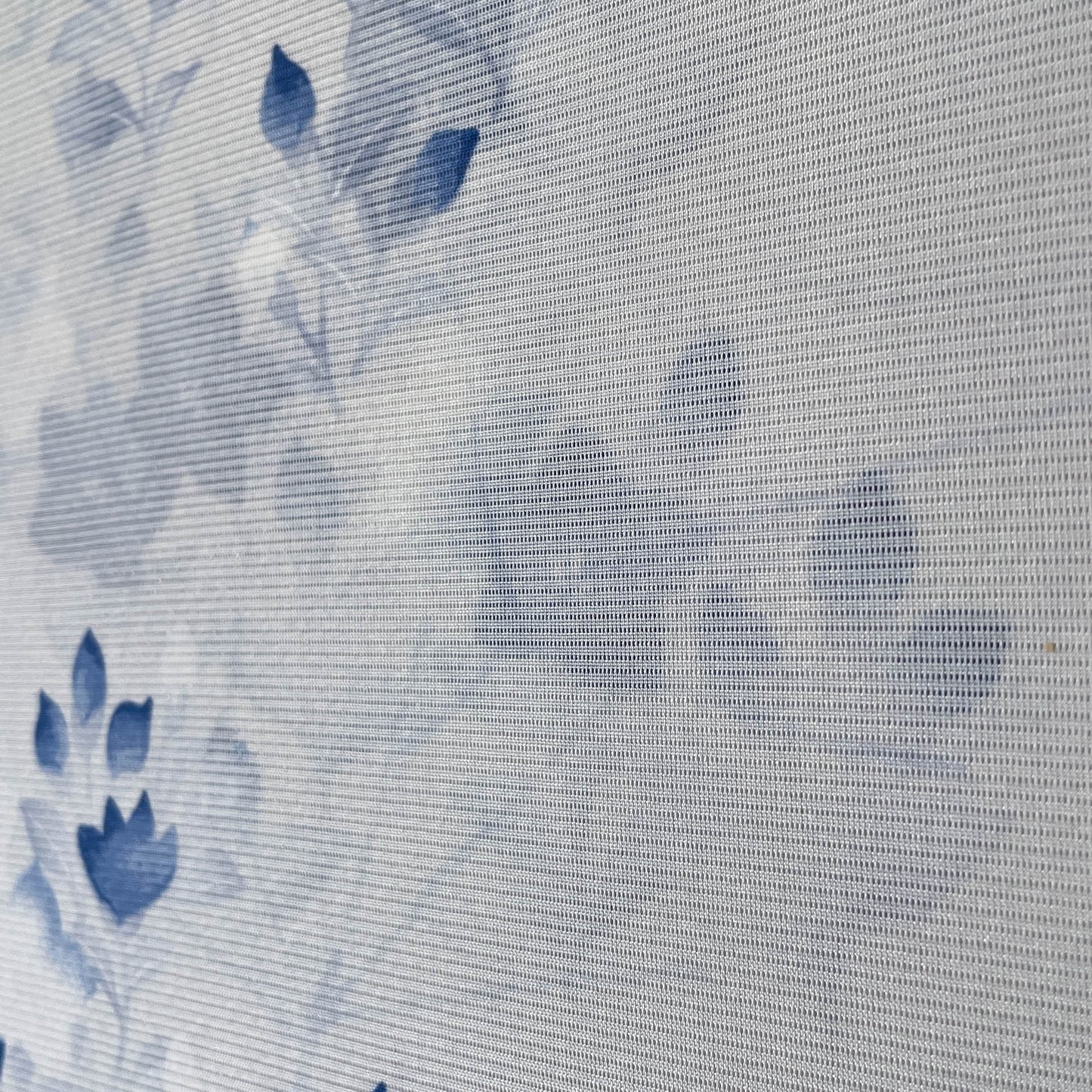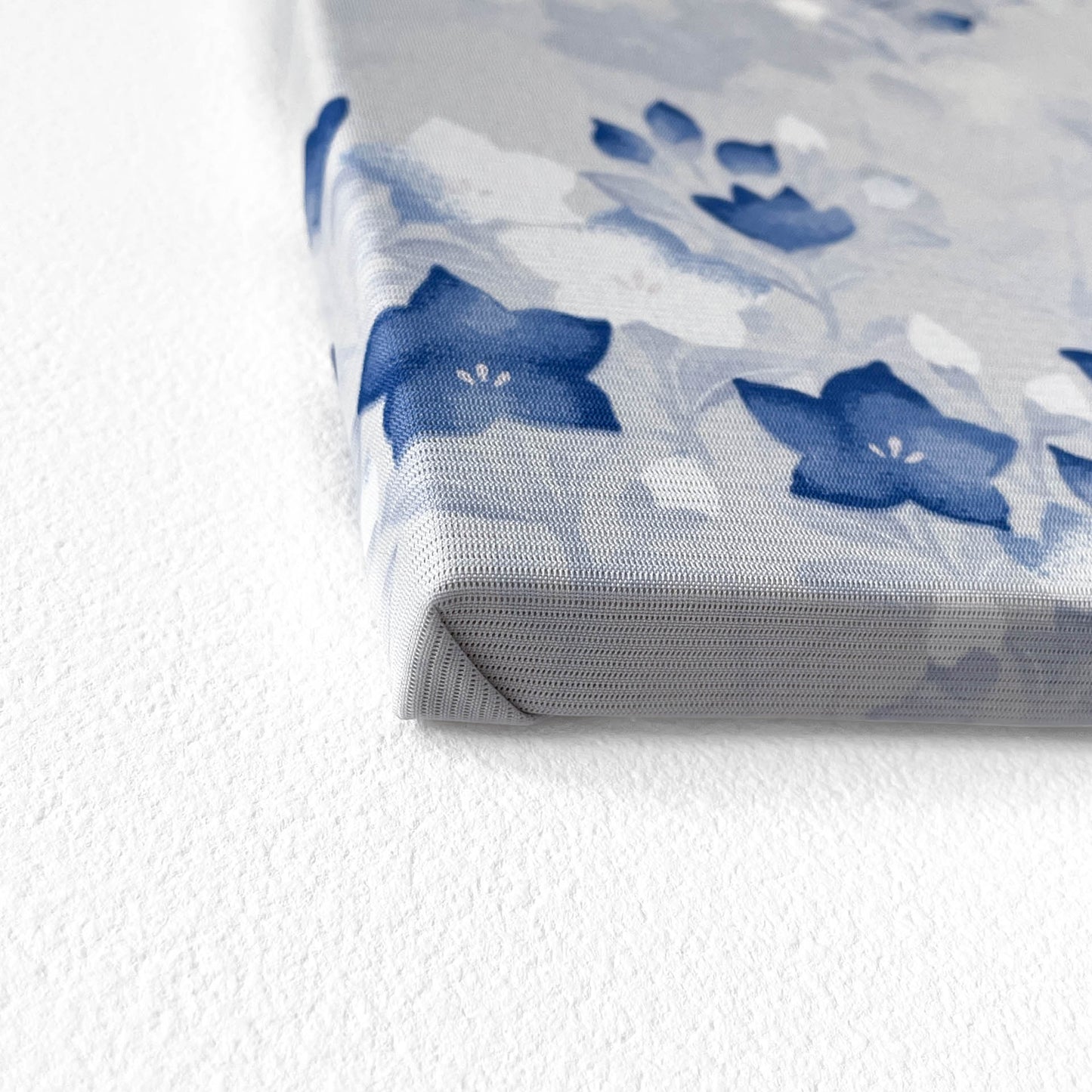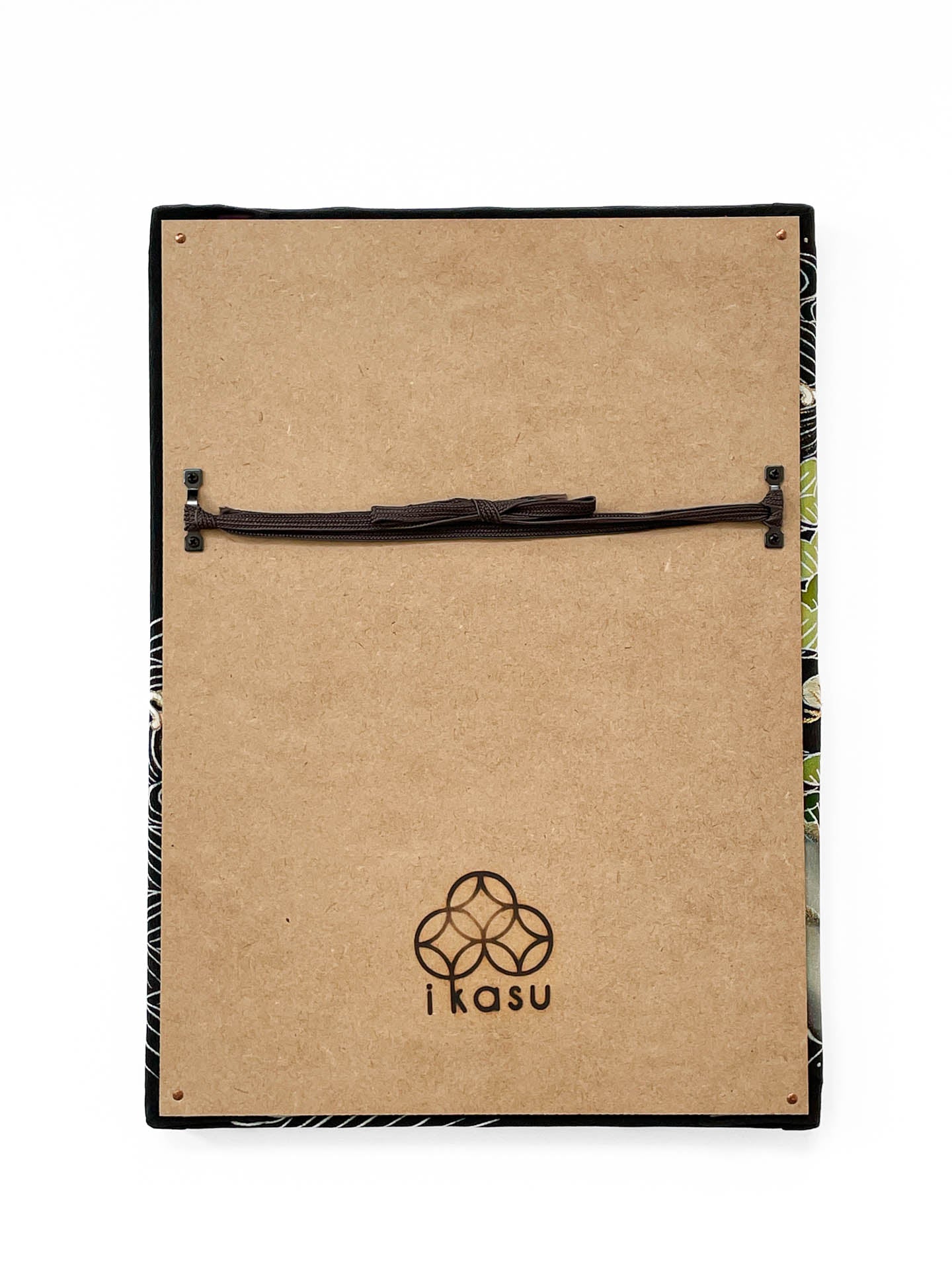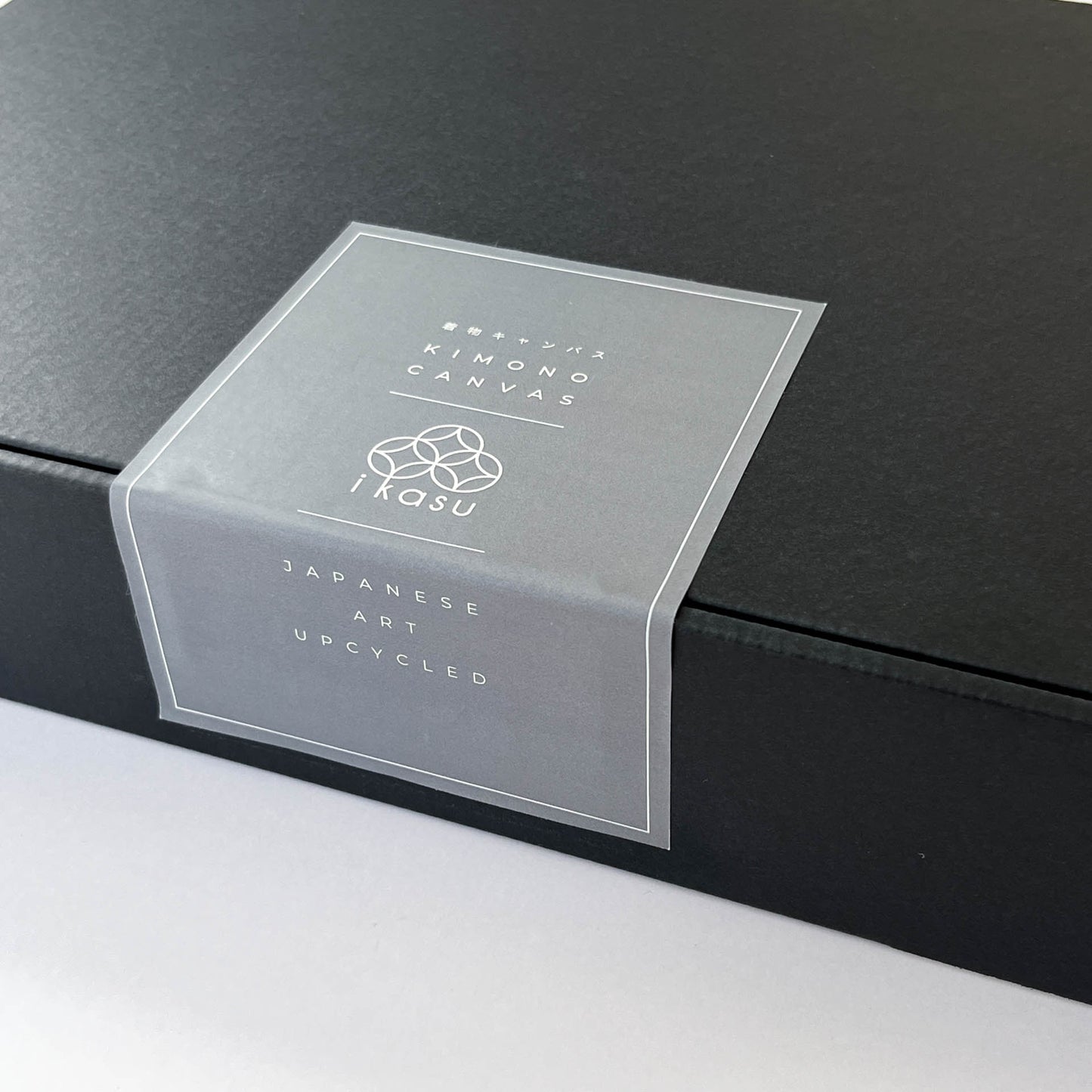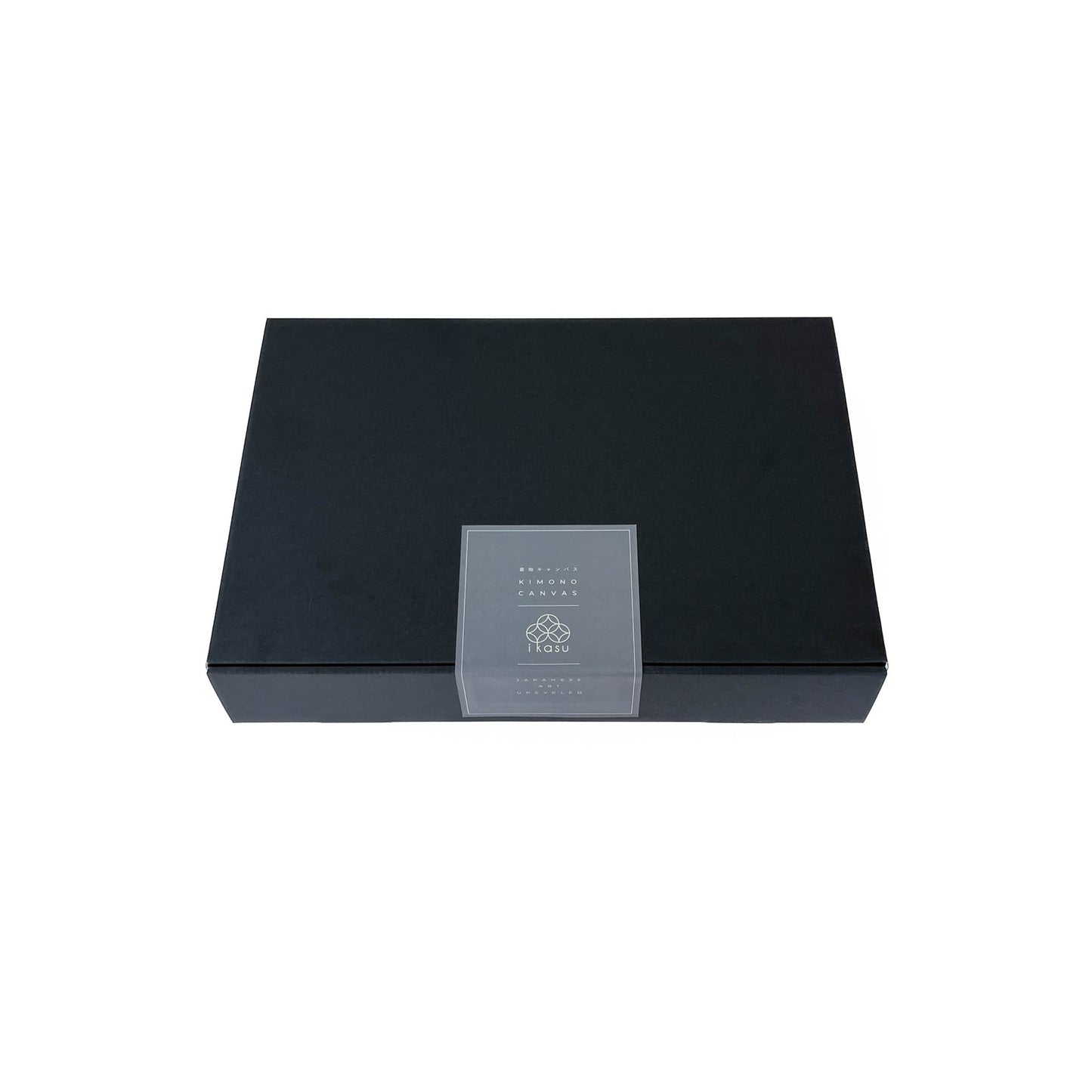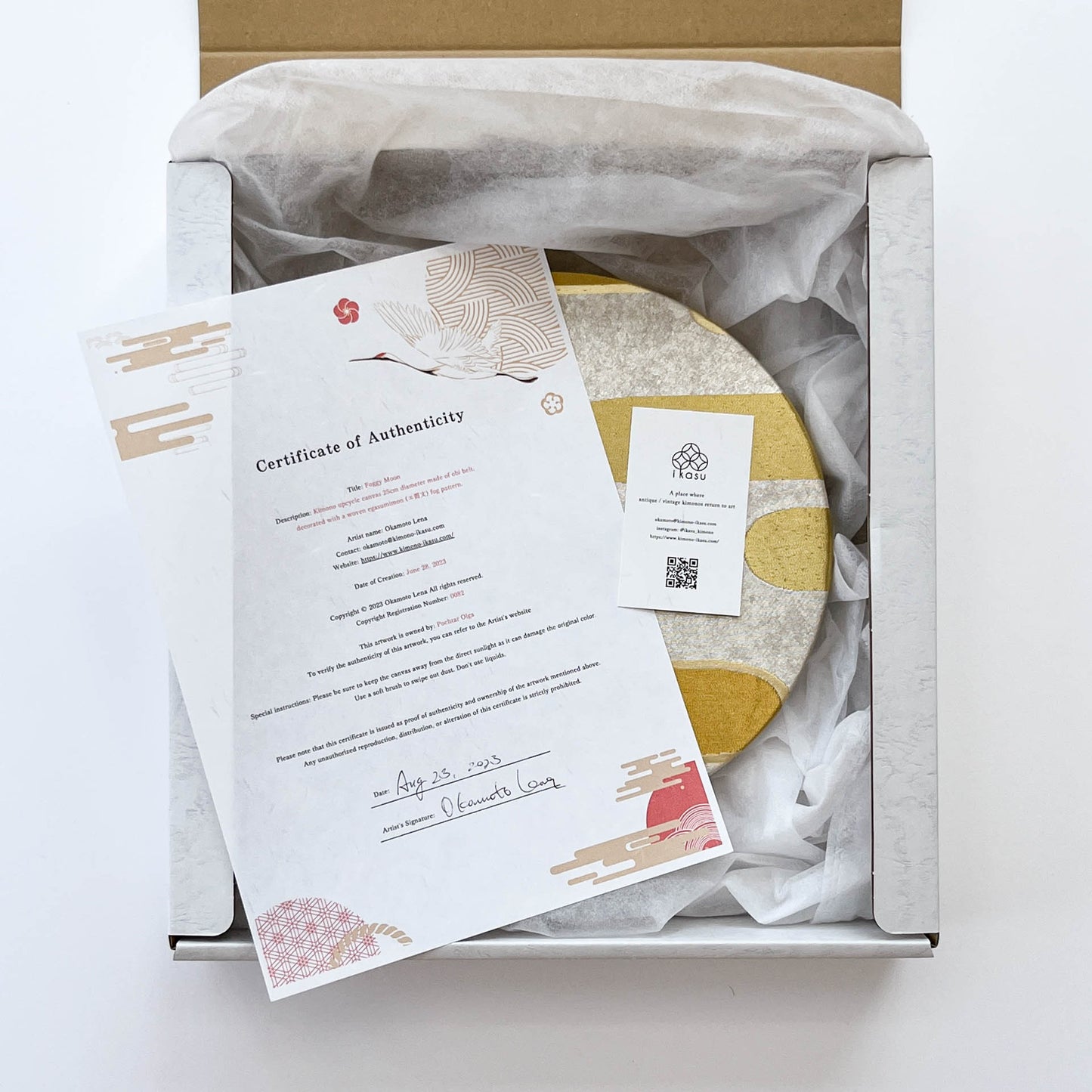Bellflower Shadows ~Eternal Devotion~
Bellflower Shadows ~Eternal Devotion~
Impossible de charger la disponibilité du service de retrait
Size
approx. 34cm x 24cm x 2cm.
Materials
silk (outside-layer) , wooden frame, cotton linen canvas (under-layer)
About this canvas
This artwork has a layered composition, using two kimono fabrics featuring indigo bellflowers on silk gauze, to create a sense of depth and perspective.
Period / Story
The kimono featured in this canvas was crafted and used during the late Showa period (1960-80ies).
Explanation and meaning of pattern and colors
This canvas is crafted from an upcycled summer kimono featuring delicate Kikyo (Chinese bellflower) patterns painted in light tones on transparent "ro" silk.
Kikyo is characterized by its beautiful blue, star-shaped flowers. Some people believe that the name "Kikyo" is derived from the idea of bringing forth further good luck (that's how the Chinese characters sound).
Korin Ogata, a painter from the mid-Edo period (1603-1868), was known for his love for this flower in his works. As a result, it has become a popular motif for summer kimonos and yukata (summer kimonos).
Indigo dye has an ancient history, it is considered to be one of the oldest dyes known to humankind, and has been in use in Japan since the Nara period (710-794). During the Edo period (1603-1867), the shogunate's restrictions on extravagance led to the widespread adoption of yukata dyed entirely in indigo among the general population.
These indigo-dyed yukata gained popularity due to their cooling appearance and the insect-repelling properties of indigo.
Since the Meiji era (1868-1912), indigo has been commonly referred to as "Japan blue" and has become a representative color of Japan.
Characteristics of the fabric
The transparency of "ro" silk fabric gives a cool impression.
It is used for summer kimonos and obis, with a horizontal stripe-like pattern with open spaces in the fabric.
Decoration Advice
Canvas can be displayed on a table, wall, etc. Hanging on a wall requires hooks, tacks or nails. It can also be displayed propped up on an easel. Ideal for a room makeover, housewarming gift, present, or souvenir for a loved one.
Precaution
All the works are made from real kimonos, antiques and vintages. For this reason, the fabric may have traces of long-term use and minor fabric damages. In case there are any scratches or stains, we always add a photo of the area on the item page, so please check before purchasing. Regarding precaution, cancellation and refund policy, please refer to the refund policy in the footer section of the site for information.
The last pictures in the gallery are the pictures of the reverse side of the canvas and the package.
Partager
